Study in Brussels 2024
-
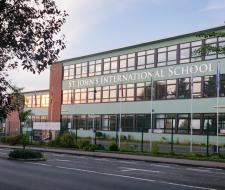 In 2019 students achieved an impressive average diploma score of 32.2
In 2019 students achieved an impressive average diploma score of 32.2 BelgiumBrusselsCurrently watching: 9from 11900.00 € / yearApply with documents
BelgiumBrusselsCurrently watching: 9from 11900.00 € / yearApply with documents -
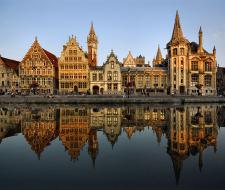
 BelgiumBrusselsCurrently watching: 3from 1310.00 € / weekApply with documents
BelgiumBrusselsCurrently watching: 3from 1310.00 € / weekApply with documents -
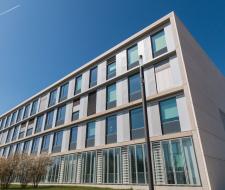 Ranked #26 worldwide for joint-EMBA programmes
Ranked #26 worldwide for joint-EMBA programmes BelgiumBrusselsCurrently watching: 2from 5400.00 € / semesterApply with documents
BelgiumBrusselsCurrently watching: 2from 5400.00 € / semesterApply with documents -
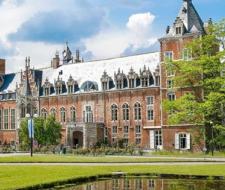 from 600.00 $ / yearApply with documents
from 600.00 $ / yearApply with documents -
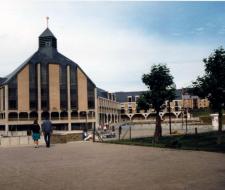 from 4554.00 $ / yearApply with documents
from 4554.00 $ / yearApply with documents -
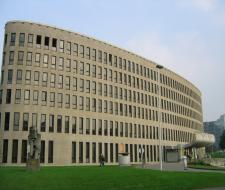 from 1591.00 $ / yearApply with documents
from 1591.00 $ / yearApply with documents -
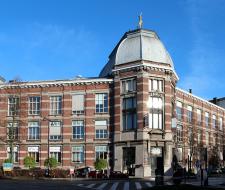 from 423.00 $ / yearApply with documents
from 423.00 $ / yearApply with documents -
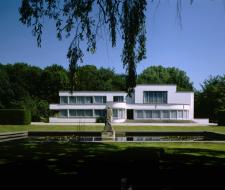 The number 51 University in Belgium
The number 51 University in Belgium BelgiumBrusselsCurrently watching: 1from 12000.00 € / yearApply with documents
BelgiumBrusselsCurrently watching: 1from 12000.00 € / yearApply with documents -
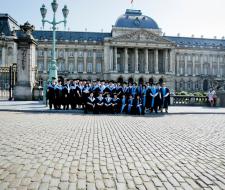 Ranked #26 worldwide for joint-EMBA programmes
Ranked #26 worldwide for joint-EMBA programmes BelgiumBrusselsCurrently watching: 1from 10800.00 € / yearApply with documents
BelgiumBrusselsCurrently watching: 1from 10800.00 € / yearApply with documents
Alternative destinations
Education information
The quality and standards of education in Brussels are high and are at the level of the best world schools, despite the notorious "cheerful" nature of Belgium. Indeed, the locals respect humor and are able to wittily joke, but this does not affect the quality of education - schools in Belgium strictly adhere to academic programs, not forgetting about the moral canons laid down in the country's education system. Diplomas and certificates of graduation from an academic school or university in Brussels are prestigious, with them you can continue your studies or work in other European countries.
On this page you can get acquainted with the best options for schools, universities and colleges in Brussels, the cost of training, choose an institution taking into account the conditions and features of teaching.

What do parents typically consider when choosing a school, in addition to teacher qualifications?
Parents have various criteria. If choosing a more affordable private school, ensure it's genuinely high-quality. Location, overall expenses, cultural programs, boarding house conditions, and level of care should be considered. Once narrowed down to a few schools, it's beneficial to meet and communicate with their representatives and form a personal opinion.
Popular prestigious schools for foreign students in Brussels
Education in Belgium is compulsory from the age of 6 - this requirement is regulated by law, and without obligation to search for a school by geographical location (registration). Parents have the right to choose any, based on personal preferences or ratings of the most prestigious educational institutions. It is possible to choose a school by language: in such a school, it is easier for a foreign child to achieve high marks, to easily move to the next educational step. Classification of schools by language of instruction:
- French speaking
- Femish
- German (often simultaneously with English).
In the first year of study in Brussels, students learn one language, from the second - studying additional ones is mandatory (1-2).
Another feature of Belgium's school education, it is the obligatory, in accordance with the Constitution of the country, study of one of two courses (2-3 hours a week) - secular ethics or the foundations of one of the religions.
Equal conditions for learning have been created for children with disabilities: in accordance with the law, they attend a comprehensive school, receiving full primary and secondary education.
The table provides a list of the main types of educational institutions in Brussels, the features of studying and class attendance.
|
Name of schools |
Features |
|
State educational |
Conditionally - free. All students are accepted, given the rating of academic performance. Disposable meals - rations, hot dishes only in some institutions |
|
Private secondary schools |
Academic program + additional classes (oriented to future specialty / for general development) - sports, art, humanities, oratory, business, etc. |
|
Half board |
Meals - 2-3 per day, joint leisure, but without accommodation |
|
Boarding with full board |
Staying in rooms with other students. For primary schoolchildren, in addition to teachers, tutors and mentors are provided |
|
Religious schools |
Together with general subjects in the curriculum includes more hours on the basics of religion, an introduction to theology |
|
International (for both local and foreign students) |
The most prestigious and expensive education. Educational programs are built on international standards. Preparation for language exams Career guidance in international specialties International communication |
|
centers at embassies |
The number of places is limited. As a rule, only students from families where at least one of whose parents is sent to work in Belgium from a state institution study for free. |
After elementary school in Brussels at the age of 12, students go to secondary education institutions, which consists of three levels, each of 2 years. For the first 4 years, schoolchildren study compulsory subjects, and at the last stage, at 15-16 years old, it is necessary to choose the type of school focused on the future profession. In Belgium there are 4 levels of academic school education:
- General. Without a professional bias. Students study the humanities and natural sciences, foreign languages, and the fundamentals of economics. It is assumed that after her graduation, the student will go to universities in Belgium, Europe and the world
- Technical Less prestigious and very narrowly focused. Suitable for applicants who have already chosen a specialty. Rducational scheme: in the first year - theory, then - mostly practical exercises. With a diploma of a technical school, a student can enter a university for specific technical specialties or start working
- Vocational and technical. The principles of studying are similar to the technical level, but after passing it, students usually do not continue their studies at a university or college, but immediately go to work
- Creative (art courses). In addition to general subjects, the main bias goes to professions related to theater, dance, and visual arts. In the learning process, the student chooses a specialty, receives a diploma and, if desired, enters a university.
The best universities and colleges for students in Brussels
Higher education in Brussels, as well as throughout the country, is provided by two language communities: French and Flemish. But in most universities, studying is also conducted in English, for example, on the basis of branches of international universities. It is characteristic that many universities accept applicants without passing entrance exams. Exceptions are specialties in:
- engineering
- medicine
- economic specialties, etc.
Higher education in Brussels is available in:
1. Universities
2. Colleges
3. Higher schools equated to a university (for example, military ones).
Duration of studies at universities is from 3 to 12 years. After the first three years of study, the student receives a Bachelor's degree - he can go to work or study further. The next two courses a student "grows" to a Master's degree; if a student is interested in obtaining a Doctoral degree, he studies further, doing research activities.
Universities in Brussels are divided into:
- state
- private.
State, as a rule, offer traditional academic programs, private - a narrower specialization, the ability to take courses in additional subjects. The most prestigious higher educational institutions in the country are concentrated in Brussels, including the oldest in Europe.
Higher education in Brussels colleges is obtained in a shorter period, but the amount of knowledge and level of a student as a future specialist is somewhat lower than university ones. Upon graduation, the college issues a diploma with a professional Bachelor's degree (at the university it is an academic bachelor). A college diploma entitles you to a university education or work in a specialty.



